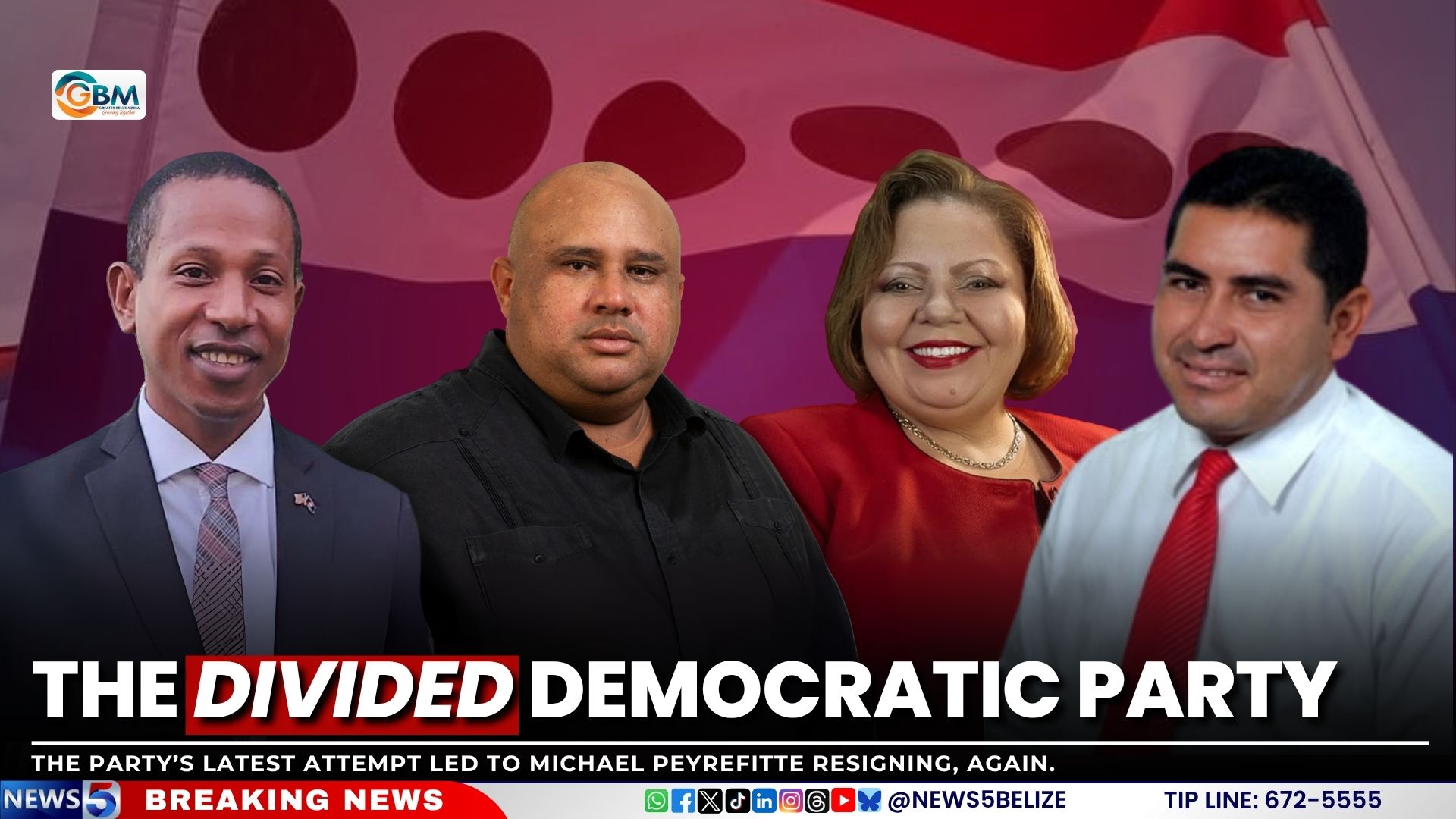The United Democratic Party (UDP) is all but united. This has been the case for quite some time, and efforts to unite the party and its leaders continue to fail. The party’s latest attempt led to Michael Peyrefitte resigning, again.
Its most recent attempt was held at the party’s headquarters in Belize City this past weekend. It was yet again another chaotic National Party Council meeting. But communications obtained by News Five show that the meeting was doomed to fail.
As previously reported, leading up to the meeting, the Leader of the Opposition, Tracy Panton, objected to how the process was conducted.
Separate letters obtained by News 5 from Opposition Leader Tracy Taegar Panton and senior UDP figures Hugo Patt, Omar Figueroa, and Aldo Salazar outlined several grievances regarding the NPC’s composition and adherence to party rules.
In her letter dated 11 July, Panton warned that the planned NPC “does not reflect the spirit of unity and collaboration” nor does it advance the party “in a manner that is fair, transparent, and constitutionally sound.” She insisted that the meeting violated an earlier agreement to maintain the “status quo ante” of party officers and delegates, essential for fostering healing and good faith.
Panton also pointed out multiple breaches of the UDP Constitution and cited that several members who should have been invited were excluded. She also criticised the inclusion of individuals aligned with former leader Shyne Barrow, who lost decisively in the last election.
Panton claimed they continue to exert “undue influence over the Party’s affairs.” She said, “For instance, Mr. Jose Espat is reportedly included as an NPC delegate, while I, as an elected UDP Member of Parliament, have been sidelined.”
She described the selective enforcement of caretaker conventions as “divisive” and “indefensible,” and urged that either uniform caretaker conventions for all constituencies or none until after the upcoming Leadership Convention scheduled for October 5.
In a separate letter, Patt, Figueroa, and Salazar also expressed frustration over the reported failure to finalise and circulate the NPC membership list, as outlined in a previous meeting on July 2. Patt had supported Barrow’s leadership ahead of the March 12 general election but shifted his full backing to Panton afterwards.
In the letter, Patt, Figueroa, and Salazar stated, “We are compelled to register our disagreement with holding an NPC until there is a clear consensus on the list.” They warned that proceeding under these circumstances risks “deserved criticism or, worse, exposing our actions to potential legal challenges.”
Although these concerns were raised before the NPC meeting, just days after it took place and less than a month after reclaiming the party chairmanship, Michael Peyrefitte resigned for the second time. He cited ongoing infighting and recent turmoil within the UDP’s NPC as reasons for stepping down. He said it undermined the commitment he had insisted on when returning, that the Panton and Barrow factions would work together for the party’s benefit to “move forward.”
